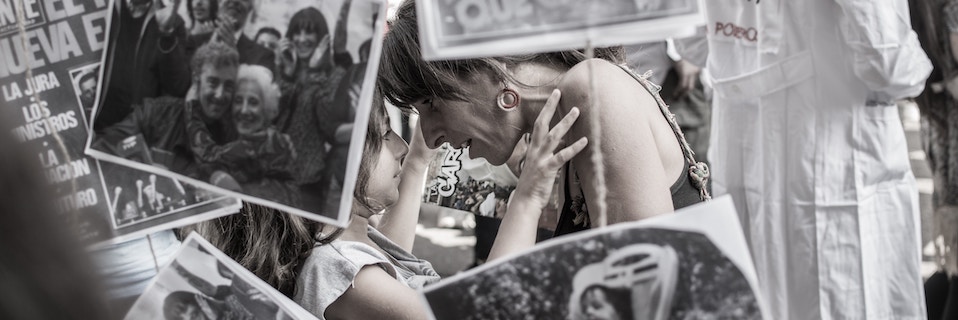
Since we often find ourselves questioning our own understanding of a crisis, it’s no surprise that we avoid these difficult subjects with children. However, I think it is more important than ever to enable difficult discussions first and foremost in our own homes.
As a parent, I understand the strong need to shield our children from negative topics and emphasize only the positive. Many parents are concerned that discussing world events with their children might provoke too much controversy or create needless worry. They prefer to simply spare the children and leave them out of it all. The reality is that we cannot protect our children from the happenings of the world, they will eventually grow up and experience it for themselves.
One year ago, I found myself in this predicament when my home country of Qatar was blockaded by neighboring countries. This affected all aspects of our lives, especially separating families and relatives. Following a long history of close commercial relations and well-established family and cultural roots across the Gulf, the rupture came as a surprise and shock to all Qataris. I was immediately challenged with the task of talking about this crisis with my children. The following are some lessons I learned from talking to my own children about the blockade:
Don’t Underestimate How Much Children Already Know
We may not be aware of just how much our children already know from the media that they interact with daily. Their experiences are dramatically broadened by their interactions with wider online communities. They are also bombarded with a tangle of information that is often unverified, incomplete, deeply partisan, and appealing largely to emotions. It is only fair to understand that children can be deeply impacted by this.
Start a Conversation
The first thing we can do is begin a conversation in a comfortable setting. When we ask them about their day at school it is important to also understand the messages they are getting from sources online. When discussing the crisis or event, we should keep the dialogue open and critical. I found it helpful to draw on my cultural values and beliefs when discussing the country’s response and position on the situation. I also learned a lot from asking my children about their thoughts and feelings. In fact, it was building their self-confidence as they learned how much I valued their opinions.
Complexity is an Opportunity
Given the global geopolitical situation, the connectedness of events is complex and entails explanations across disciplines in geography, history, technology, politics, economics, and culture. Instead of seeing this as a setback we can use it as an opportunity to learn more about different topics and understand the interconnectedness of events in people’s lives.
Teach Critical Thinking
The situation presents parents and teachers with a perfect opportunity to test and develop our young peoples’ critical thinking skills. We can guide young people by modeling the crucial critical thinking skills they need to make informed, evidence-based conclusions about the diverse information they constantly have to process. Research indicates that young and digital-savvy students don’t always recognize the political bias of social messages, unable to tell the difference between ‘fake’ and real news.
Distinguish Between Opinions and Fact
We should be encouraging young people to always ask questions about the material they are exposed to. While we can acknowledge that people have various legitimate points of view and opinions, parents should point out that ‘opinions’ are easy to have. The question is: Are they supported by evidence? And how reliable is the evidence? As solid evidence is collected, parents can encourage children to develop more substantial ideas or theories. But just as with any scientific process, the theory evolves with new evidence and new situations, so we must be willing to adjust opinions and ideas with new understandings.
Opening conversations and encouraging a questioning mindset are perhaps the most effective ways to help our youth develop media literacy skills and critically evaluate information and its sources. Sharing verified, contextualized information about a crisis can empower our children to think for themselves, to draw balanced conclusions and make sense of regional and global issues more broadly. A commitment to critical thinking can make the process of communicating with our children about difficult topics more productive, simple, and engaging for all.
I believe that the questioning mindset is at the core of all learning. It is liberating and it frees us to innovate and wonder about our world. It frees us to constantly seek more understanding. It’s exciting — and challenging — to remain open, but it is well worth it. Let’s encourage our children to deepen their understanding of the world we live in.


